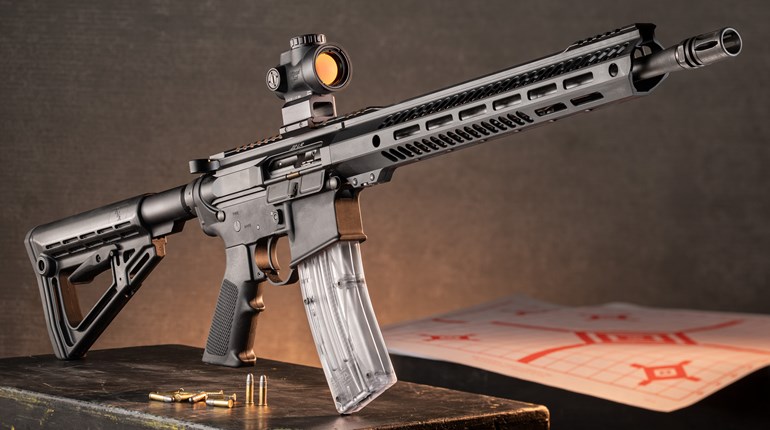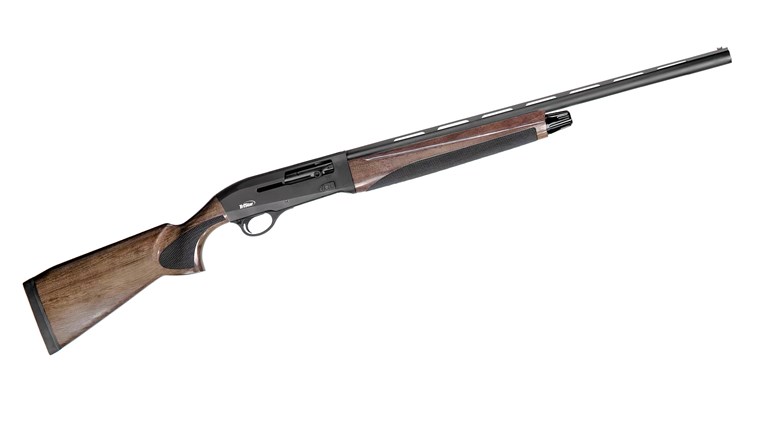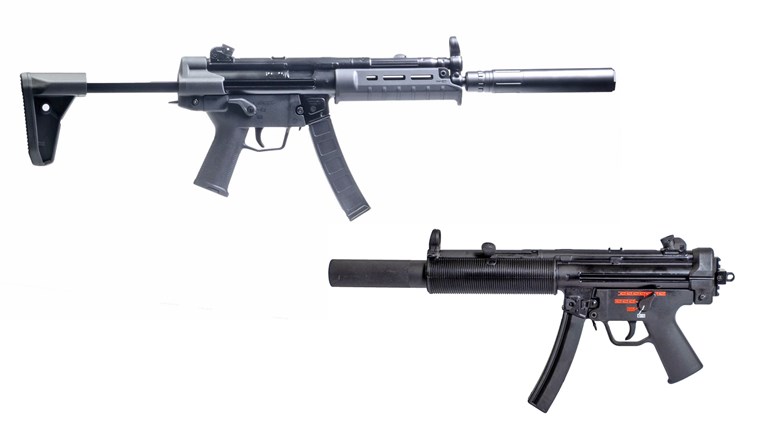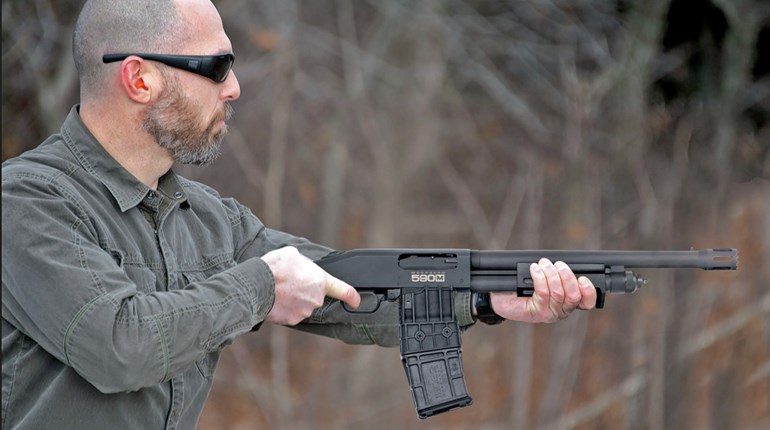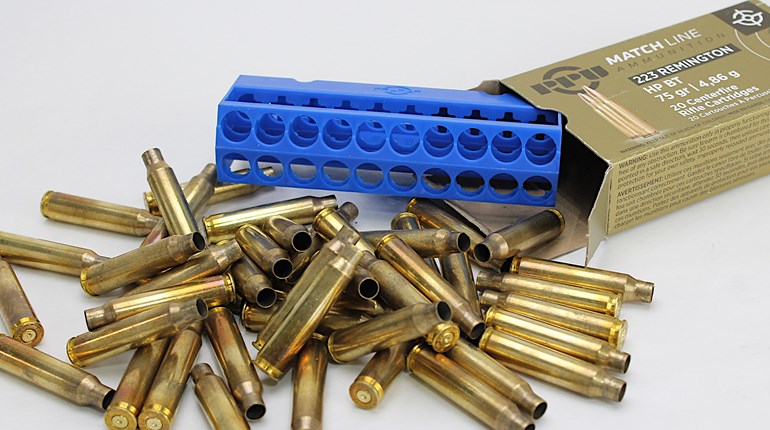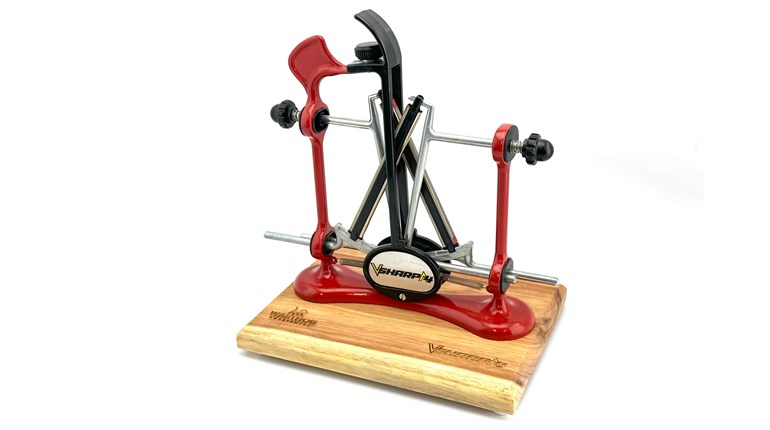
It’s funny. Not all that long ago, I reviewed an AR-15 and started by waxing nostalgic for “the good old days” when ARs were expensive and AKs weren’t. I reminisced about how in the mid-aughts, one could find a decent (well, functional) AK-variant for somewhere in the vicinity of $300, while even entry-level ARs were almost triple that. These days, the paradigm has shifted, slightly, with entry-level AK- and AR-pattern guns within a few hundred dollars of each other.
Defining exactly how that happened is difficult, and fraught with geopolitics and other forces outside our control. Mainly, though, the supply of cheap guns dried up—along with cheap ammunition. One of the driving forces in the aughts behind the affinity for the AK-pattern rifle had to do with the simple fact that one could get a crate of 1,000 rounds of 7.62x39 mm ammunition for less than $100. Way less. Back in the days when .223 Rem. was selling for $5 (or more) for a 20-round box, that was a huge difference in the cost to feed your new rifle. 
Over time, however, the AR-15 grew immensely popular and the surplus ammunition started to dry up, too. With prices beginning to equilibrate, the AK-style platform started to lag behind the AR. Add in the explosion in different chamberings available for the AR (and the fact that the AR is far more user-customizable) and even the ballistic “advantage” of 7.62x39 mm over 5.56 NATO became a moot point. Rounds like the .300 BLK provide performance similar to the 7.62x39 mm and offer vastly superior subsonic performance and sound suppression. And, lastly, there’s still the thorny issue of 922(r) compliance.

What’s 922(r)? Quite simply, it’s the Federal law that forbids altering certain imported semi-automatic rifles (among other things) with certain parts. Without getting into the particulars (partly because it’s quite confusing and mostly because we think it’s ridiculous and should never have been passed into law in the first place), in 1989 a number of foreign semi-automatic rifles were banned from importation into the U.S. under the auspices of having no “sporting purpose.” This is where we get things like thumbhole stocks rather than pistol grips, because somehow that makes a firearm “sporting” or not. (That sound you hear is my eyes rolling back into my head.)
If you happened to have an imported rifle that was in its “sporting” configuration and wished to change it back to original, the use of foreign parts is not allowed.
Confused? That’s the point. What is or isn’t a part, where a part is manufactured, etc. are minutiae in which few are versed. For the casual firearm owner, it’s simpler to avoid these altogether. There is a reason for going down this particular rabbit hole, though. The Century Arms BFT47 is entirely American-made, so 922(r) simply doesn’t apply. Period. Full stop. You want to use a metal 30-round magazine of indeterminate origin? Go right ahead. Feel like putting on a stock you found at a gun show? No worries. Quite simply, because it’s an American rifle, it’s no different from any other type of native firearm. Avoiding these types of regulatory problems, combined with customer demand, was the driving force behind bringing the BFT47 to market.

Let’s back up a bit, though, and unpack the name. It’s pretty clear why the “47” is there, but the “BFT?” That’s a bulged/forged trunnion, referring to the reinforced section of the lower that’s thicker (1.5 versus 1 mm) for enhanced durability. It’s a difference that’s probably of minimal importance, in the grand scheme of things, for a semi-auto carbine, but it’s a look into the thought process that went into the design of the BFT47.
Adam Ruonala, national marketing director for Century Arms, explained the impetus behind the BFT47: “The BFT47 is the next evolution of the All-American-made AK. It ties in the reliability of American production, both from the engineering and import availability aspects, as well as incorporating the specs of the platform that people love on the imports. We wanted to make a firearm that could finally bring together the AK community that had the debate of cost to quality. With a bulged and forged trunnion, bayonet lug and cleaning rod, optics rail, American hardwood furniture and enhanced mag release and safety, we are confident we did just that.”
Visually, the BFT47 looks, well, like a standard AK-pattern rifle. Whether you want to get your “Red Dawn” cosplay on or simply prefer the manual-of-arms of the AK, the BFT47 will fill that role nicely. Actually, you’ll need to drag it down a gravel road first, because it’s quite a good-looking piece—there’s no “shellacked using Olga’s toenails” finish on this AK. American walnut is used for the stock and handguard, giving the BFT47 a polished, dare I say attractive, look. As AK-pattern rifles go, the BFT47 is one of the better-looking ones out there. Aesthetics aside, it’s got all the right pieces in all the right places, right down to the cleaning rod under the barrel that runs through an honest-to-goodness bayonet lug.
As for handling, it unsurprisingly handles like every other AK. Magazines rock into place and with a click that can be heard in the next county. The safety selector requires significantly more hand strength to engage and disengage than that of the AR-pattern rifle, although there is a slight deviation here on the BFT47 from the standard AK: there’s a cutout in the safety lever that serves to hold the bolt in the open position. Similar to using a slide stop on a handgun, when retracting the bolt rearward, simply engage the safety (in the correct spot, of course) and the bolt stays open. Actuating the safety off will close the bolt—handy for quick engagement if needed. Naturally, the safety can be engaged without locking the bolt open, as well.

A polymer pistol grip and upgraded trigger round out the control options. While the pistol grip is pretty plain, there’s a world of aftermarket grips (and stocks) out there from which to choose should you want to upgrade. And, again, no need to worry about that replacement grip’s country-of-origin. The RAK-1 enhanced trigger is described as single-stage, but a case could be made for it being closer to a two-stage, with a short, heavy takeup followed by a crisp break. It’s not a 2-pound, long-range precision trigger, but you shouldn’t expect it to be one. It’s perfectly fine for a defensive carbine, a role the BFT47 can fulfill quite well.
 Adding to the utility of the BFT47 is an integral side-mount rail that allows a plethora of aftermarket accessory options. Companies like Midwest Industries, RS Regulate and others make a variety of attachment choices, with platform-specific mounts through standard Picatinny-rail models available. While flattop AR-15s are unquestionably easier when it comes to adding optics, the right rail attached to the solid side-mount plate on the BFT47 is a close second. With quick-release mounts, you can even swap between red-dot sights and magnified optics and, depending on the mount, not even lose zero. While it’s still easier to mount optics on an AR, the side mount on the BFT47 closes the gap considerably.
Adding to the utility of the BFT47 is an integral side-mount rail that allows a plethora of aftermarket accessory options. Companies like Midwest Industries, RS Regulate and others make a variety of attachment choices, with platform-specific mounts through standard Picatinny-rail models available. While flattop AR-15s are unquestionably easier when it comes to adding optics, the right rail attached to the solid side-mount plate on the BFT47 is a close second. With quick-release mounts, you can even swap between red-dot sights and magnified optics and, depending on the mount, not even lose zero. While it’s still easier to mount optics on an AR, the side mount on the BFT47 closes the gap considerably.
For takedown, well, it’s an AK. I’ve never been particular to the way the AK-pattern rifles take down, but it sure is simple, and the BFT47 follows the normal procedure: Unload the firearm (check it twice), push the button on the back of the receiver cover in, take the cover off and set aside. Remove the spring, then pull the bolt carrier back and out of the receiver. Rotate the lever and take the handguard and gas cylinder off. At this point, clean what needs to be cleaned and lubricate what needs to be lubricated. It’s an AK. You should do this about every time the Olympics roll around. Heck, maybe even every time Halley’s Comet returns. OK, that might be a slight exaggeration.
In operation, the BFT47 is unfailingly reliable—you know, like an AK. Whether in slow-fire or more rapid courses of engagement, there were no failures to load, fire or eject any round, from imported surplus FMJ fodder to brass-cased hollow-point rounds meant more for bolt-action precision work. While certain models of the BFT47 have been recalled for a “potential durability issue” that Century felt “may affect proper feeding and/or chambering of ammunition,“ none were experienced in the model received for testing. In addition to the US Palm magazine that comes with the BFT47, we tested an XTECH polymer magazine, a steel surplus mag of indeterminate origin and a Magpul PMag. The BFT47 didn’t care what was feeding it ammo. Of note is the, ahem, robustness of extraction—in our indoor range, empty cases were flung up to 20 feet away (and yes, the brass cases were mostly dinged). Accuracy was, despite what the internet will tell you, quite decent, with average groups of 2 inches or smaller at 100 yards. At ranges more likely to come up in defensive scenarios, that’s well in excess of what you need.
So, what’s the bottom line on the Century Arms BFT47? If you’re in the market for an affordable (by today’s standards) AK-pattern rifle that’s good-looking and runs well, the BFT47 is definitely worth consideration. You can leave it as is, or swap components to perfectly customize it without worrying about running afoul of regulations regarding imported parts, because it’s an American-made rifle. There is one downside, however. The American walnut handguard is just too pretty to risk catching on fire when performing mag dumps—although, lately, who’s got the cash (or spare ammo) for that?

Options for Optics
Mounting an optic to an AK has traditionally been a more difficult proposition than with an AR-pattern rifle. Absent the side-mount, a variety of, well, less-than-stable options have been available, from receiver covers with rails to railed handguard sections that replace the wood covers. Even with the side mount, it can be dicey getting a mount that’s sufficiently sturdy to allow a proper zero with an optic. Here are two options we’ve found to work well.
Midwest Industries’ Gen2 QD Modular AK Optic Mount is, as the name implies, a quick-disconnect offering that gives a 16-slot Picatinny rail for longer, magnified optics or a red-dot sight and a magnifier. The bottom lever requires a bit of experimentation to find the right balance between tight and difficult to remove, but once in place is a super-stable mount for your scope. MSRP: $169.95; midwestindustriesinc.com
RS Regulate’s AK-300 Modular Side Mount and Full-length Picatinny Rail work in conjunction to offer a 12-slot Picatinny rail section that can be mounted quite a few ways depending on the rifle to which it is being attached and the desired eye-relief of the shooter. The side-mounted lever also takes a bit of trial-and-error to adjust, but is quite low-profile and adds little weight to your carbine. MSRP: $143 (mount), $82 (rail) rsregulate.com











